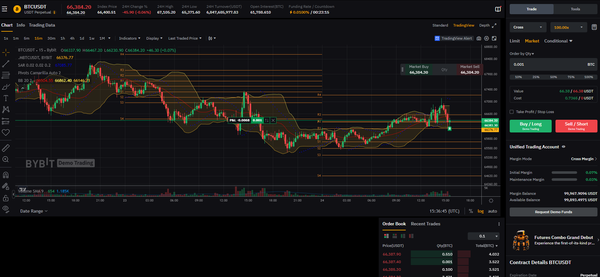From Suits to Software: Navigating the Investment Revolution from IPOs to ICOs and IDOs

The financial landscape is undergoing a profound transformation, with the advent of blockchain technology paving the way for innovative investment opportunities. The traditional gatekeepers of investment, epitomized by Initial Public Offerings (IPOs), are being challenged by the democratic and inclusive nature of Initial Coin Offerings (ICOs) and Initial DEX Offerings (IDOs). This evolution is not just about new ways of fundraising; it represents a paradigm shift towards economic empowerment and inclusion, offering a glimpse into a future where the financial markets are accessible to all.
The Traditional Gatekeepers: IPOs
IPOs have long stood as the bastion of corporate fundraising, enabling private companies to access public capital markets. However, the process is mired in regulation and often reserved for a select group of institutional investors and high-net-worth individuals. This exclusivity has kept the average investor at arm's length, limiting their ability to participate in potentially lucrative early-stage investments.
Initial Public Offering (IPO)
An Initial Public Offering (IPO) is a process through which a private corporation offers shares of stock to the public for the first time. This transition from a private to a public company can be a critical time for private investors to fully realize gains from their investment as it typically involves share premiums for current private investors. Simultaneously, it allows the public to participate in the offering. The reasons companies pursue an IPO are multifaceted, including raising capital to expand, pay debts, attract and retain talented employees, increase their market share, or even to allow early investors and founders to monetize their investment.
- Preparation: Getting company affairs in order, auditing financials, and assembling a team of advisors.
- Regulatory Review and Documentation: Filing a registration statement with regulatory bodies detailing the company's financials and business for investor scrutiny.
- Pricing: Determining the share price based on company valuation, market conditions, and investor interest.
- Roadshow: Presenting the company to potential investors to generate interest and excitement.
- Going Public and Trading: Officially selling shares on the stock exchange and allowing public trading.
- Post-IPO Period: Adhering to increased regulatory compliance and public financial reporting, with access to more capital markets.
The New Vanguard: ICOs and IDOs
Contrastingly, ICOs and IDOs present a radical departure from this model. By leveraging blockchain technology, these platforms allow startups to raise capital directly from a global pool of investors, without the need for intermediaries. This method not only simplifies the fundraising process but also democratizes it, enabling anyone with an internet connection to invest in early-stage companies.
Initial Coin Offering (ICO)
An Initial Coin Offering (ICO) is a fundraising mechanism often used by startups in the cryptocurrency and blockchain space to raise capital for new projects. It involves the creation and sale of digital tokens or coins to investors or speculators in exchange for cryptocurrencies like Bitcoin (BTC) or Ethereum (ETH), and sometimes even fiat currencies. ICOs have been particularly popular because they provide a way for projects to raise funds without going through the more rigorous and regulated processes required for traditional venture capital funding or public offerings.
- Announcement and Whitepaper: Detailing the project's concept, technology, and funding needs.
- Token Creation: Generating digital tokens for the ICO.
- Campaign Launch: Selling tokens to investors for cryptocurrencies or fiat.
- Use of Proceeds: Funding project development and operations.
- Post-ICO: Tokens are listed on exchanges for trading, and the project moves forward with development.
Initial DEX Offerings (IDOs)
Initial DEX Offerings (IDOs) are a type of crowdfunding where a new cryptocurrency project launches a token through a decentralized exchange (DEX). IDOs represent an evolution from earlier funding models such as Initial Coin Offerings (ICOs) and Security Token Offerings (STOs), aiming to offer greater liquidity, immediate trading, and a more decentralized framework for the fundraising process. Here's a brief overview of how IDOs work:
- Project Selection and Preparation: Choose a DEX, develop the token, and plan marketing.
- Smart Contract Creation: Develop a contract outlining sale conditions such as price and duration.
- Listing on a DEX: Launch the token sale directly on a decentralized exchange.
- Participation: Investors buy tokens using cryptocurrencies like ETH or stablecoins.
- Immediate Liquidity and Trading: Tokens are quickly tradable on the DEX, providing instant liquidity.
- Use of Funds and Project Development: Raised funds support project growth and operations
Economic Empowerment and Global Inclusion
The implications of ICOs and IDOs extend far beyond the realm of investment opportunities; they are pivotal in driving economic empowerment and fostering global inclusion. These mechanisms are breaking down the geographical and economic barriers that have historically marginalized vast swathes of the global population, offering a new pathway to financial participation and prosperity.
Bridging the Global Divide
ICOs and IDOs are instrumental in integrating the unbanked and underbanked into the global economy, providing access to financial services and opportunities for wealth creation. This inclusive approach not only empowers individuals but also stimulates innovation and economic growth, contributing to a more equitable global financial landscape.
The BNB Success Story: A Testament to ICOs' Potential
A prime example of the transformative power of ICOs is the success story of Binance Coin (BNB). Launched through an ICO in 2017 at approximately $0.15 per token, BNB's value has skyrocketed, with current prices around $561.30, translating to an astonishing ROI of approximately 374,100%.
As part of the ICO, BNB tokens were distributed among various participants, including angel investors and the Binance founding team.
Here’s a brief breakdown of how BNB tokens were initially distributed:
- Founding team: 40% (80 million BNB)
- Angel Investors: 10% (20 million BNB)
- Public sale: 50% (100 million BNB)
All of the 100 million BNB tokens available for public sale were sold during the ICO at 15 cents per token. Therefore, Binance raised a total of US$15 million in bitcoin and ethereum.
From the $15 million that was raised, 35% was allocated to upgrading the Binance platform and exchange system; 50% was allocated for Binance branding, marketing, and education of new innovators; and the remaining 15% was used as a reserve in case of any emergencies or unprecedented circumstances.
This case underscores the significant potential of ICOs and IDOs to offer substantial financial gains, akin to the opportunities once reserved for the financial elite.
Navigating the Future
As we embrace the investment revolution brought forth by ICOs and IDOs, it is crucial to address the challenges that come with this new terrain, including regulatory issues and market volatility. Developing frameworks that protect investors while preserving the accessibility and innovation of these platforms will be key to sustaining their role in economic empowerment.
Conclusion
The shift from traditional IPOs to ICOs and IDOs marks a significant milestone in the democratization of financial markets. By offering a more inclusive and accessible investment landscape, these innovative mechanisms are paving the way towards a future where economic empowerment and global inclusion are not just ideals but realities. As we continue to navigate this evolving landscape, the story of Binance Coin (BNB) serves as a beacon, illustrating the vast potential that lies in embracing the new vanguard of investment opportunities.




